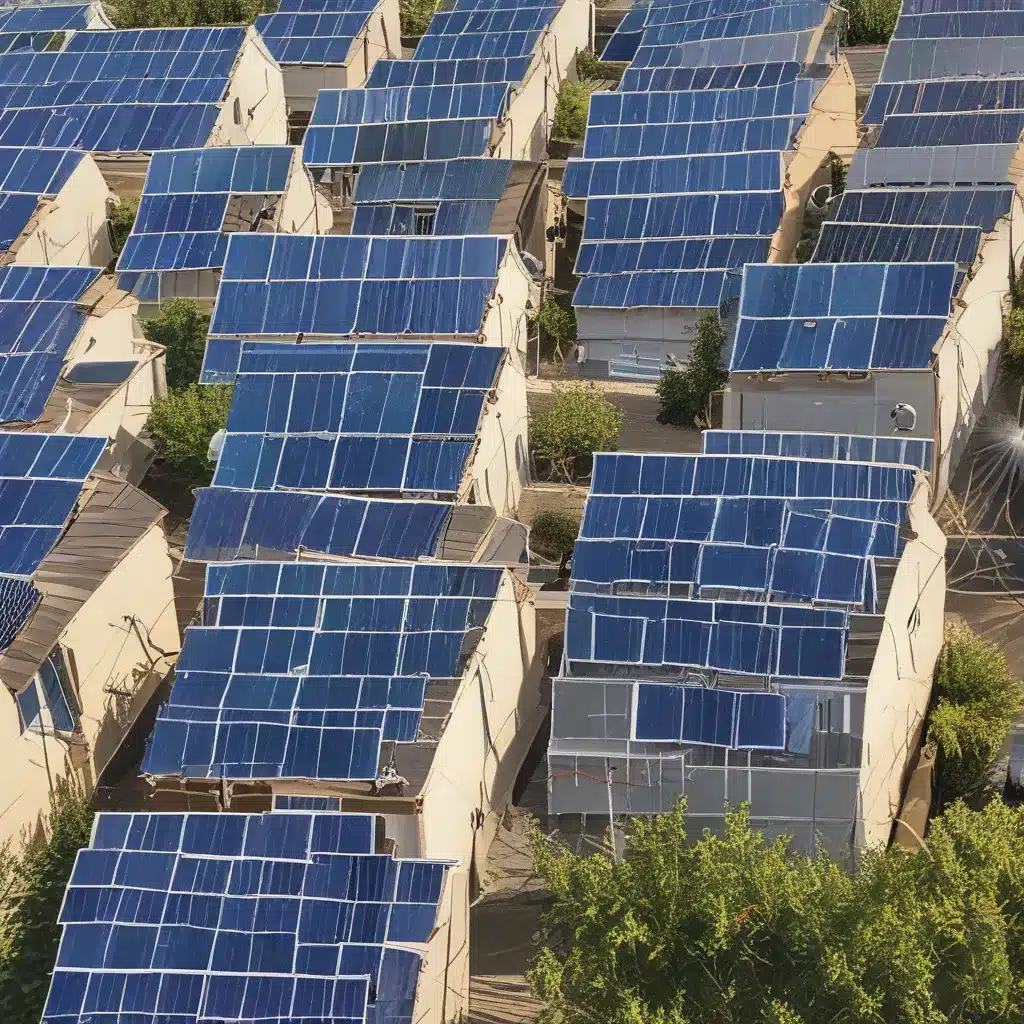
The Solar Conundrum: To Lease or to Buy?
As I stood on my porch, gazing up at the sun-drenched rooftops of my neighborhood, I couldn’t help but wonder – should I make the leap into the world of solar energy? The promise of lower utility bills and a greener footprint was tempting, but the financial logistics had me scratching my head. Do I lease the solar panels or bite the bullet and buy them outright? It was a decision that weighed heavily on my mind, and I knew I wasn’t alone in this dilemma.
Leasing Solar: The Low-Commitment Approach
Leasing solar panels can be an attractive option for those of us who want to dip our toes into the renewable energy pool without the hefty upfront investment. According to Forbes, the average cost of leasing solar panels can range from $50 to $250 per month, with factors like energy usage, location, and credit score playing a role in the final price tag. The best part? Many solar companies offer zero-down agreements, making the transition to solar energy even more accessible.
But there’s a catch – when you lease solar panels, you don’t actually own them. Instead, a third-party company maintains ownership and is responsible for the installation, maintenance, and eventual removal of the system. While this can be a more budget-friendly option, it also means you won’t qualify for any federal tax credits or other solar-specific incentives.
Buying Solar: The Long-Term Investment
On the flip side, purchasing solar panels outright can be the more financially savvy decision in the long run. Forbes estimates that the average cost of installing solar panels is around $18,000, but the payback period – the time it takes to recoup your investment through energy savings – is typically between 7 to 10 years. After that, the savings just keep on coming!
When you own your solar system, you’re eligible for a slew of incentives and rebates, including federal tax credits and state-specific reimbursements. These can significantly offset the initial cost, making the long-term investment well worth it. Plus, you have complete control over your system and can enjoy the pride of being a solar homeowner.
But the upfront cost is a major hurdle for many. CNET suggests that exploring solar loans or home equity lines of credit (HELOCs) can help bridge the gap, allowing you to spread out the payments over time while still reaping the benefits of solar ownership.
The Pros and Cons: A Side-by-Side Comparison
To help you weigh your options, let’s take a closer look at the key differences between leasing and buying solar panels:
| Leasing | Buying |
|---|---|
| Upfront Cost: Little to no money down | Upfront Cost: $18,000 on average |
| Ownership: Third-party company owns the system | Ownership: You own the system |
| Incentives: No access to tax credits or rebates | Incentives: Eligible for tax credits and rebates |
| Maintenance: Third-party company responsible | Maintenance: You are responsible |
| Payback Period: No payback period, but ongoing monthly costs | Payback Period: 7-10 years on average |
| Real Estate Impact: Leased system can complicate home sale | Real Estate Impact: Owned system adds value to your home |
The Decision: Assessing Your Needs and Priorities
As I pored over the details, it became clear that the choice between leasing and buying solar panels ultimately comes down to your personal circumstances and priorities. If you’re tight on cash but want to start saving on your utility bills right away, leasing may be the way to go. But if you’re able to make the upfront investment and are looking to maximize your long-term savings, purchasing solar panels could be the smarter financial decision.
Ultimately, the best solar solution for you depends on factors like your budget, how long you plan to stay in your home, and your overall energy needs. That’s why it’s crucial to do your research, crunch the numbers, and consult with reputable solar companies like Solar A Systems Inc. to find the option that fits your unique situation.
The Solar Surprise: Unexpected Delights
As I weighed my options, I stumbled upon a few unexpected delights that made the solar decision even more enticing. For one, I discovered that owning solar panels can actually increase the value of my home – Forbes reports that a solar-powered home can fetch a premium of up to $15,000 on the real estate market. And let’s not forget the sheer joy of knowing that I’m doing my part to reduce my carbon footprint and contribute to a more sustainable future.
So, as I stood on my porch, watching the sun’s rays dance across my rooftop, the decision became a little clearer. While the financial logistics may seem daunting at first, the long-term benefits of solar energy are simply too compelling to ignore. Whether I choose to lease or buy, I’m confident that my journey into the world of renewable power will be a rewarding one.


